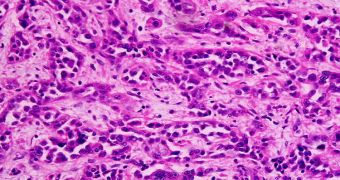Specific variations that occur in three genes boost the risk of developing non-cardia gastric cancer in patients who are also heavy beer drinkers. Investigators made the announcement in a new study, which was recently presented in the United States
Experts showcased their latest research on Monday, April 4, at the 102nd annual meeting of the American Association for Cancer Research (AACR). The conference is being held between April 2-6, in Orlando, Florida.
They explain that the three genes which were identified as risk factors are all involved in the process of metabolizing alcohol, hence the connection. But researchers also had bad news for other groups too.
According to the new work, the same elevated risk (albeit a bit lower than in the first group) is also apparent in people who drink beer heavily, but do not display the genetic variants the work covered.
The same connection holds true for non-drinkers who have the genetic variant. In other words, genes such as rs1230025 or rs283411 make people predisposed to developing non-cardia gastric cancer.
“This is a classic gene-environment interaction. Having both of these risks – heavy beer consumption and rs1230025 – appears to be worse in terms of gastric cancer risk than having just one or neither,” explains Eric Duell, PhD.
The expert holds an appointment as a senior epidemiologist at the Catalan Institute of Oncology (CIO) Cancer Epidemiology Research Program, in Barcelona, Spain. He explains that gastric cancer is the second leading cause of death worldwide, and that science needs to come up with a cure fast.
According to the researcher, the environmental component that triggers gastric cancer may in fact be a lot stronger than its genetic component. The new investigation is one of the first ever to show a clear connection between alcohol use and the risk of developing pancreatic cancer.
Overall, investigators analyzed data related to alcohol consumption for more than 521,000 people. The information on the participants – all of which were aged between 35 and 70 – were collected from the 1992-1994 European Prospective Investigation into Cancer and Nutrition (EPIC) study.

 14 DAY TRIAL //
14 DAY TRIAL //